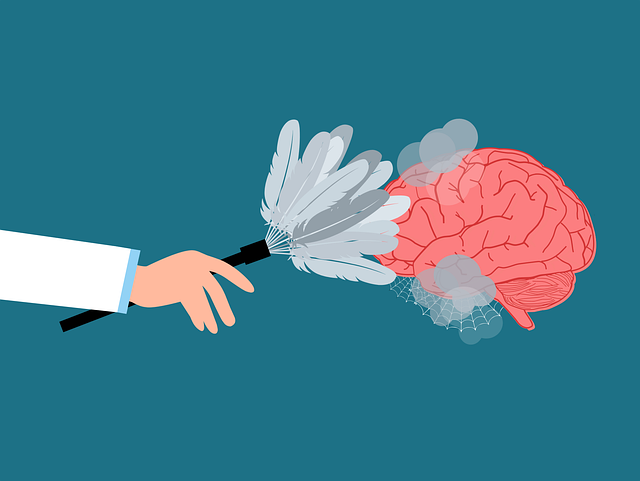Colorado Springs Young Adults Therapy emphasizes comprehensive risk assessment, balancing external factors with internal mental health dynamics. Through empathetic connections, dynamic resources, open communication, mindfulness, and 'Mind Over Matter' principles, therapists foster resilient healing environments. Continuous learning, emotional intelligence, and clear work-life boundaries prevent burnout, ensuring safer, evidence-based treatment for young adults in Colorado Springs.
“In the field of mental health, risk assessment is a cornerstone of patient safety. This comprehensive guide explores essential practices for Colorado Springs Young Adults Therapy professionals. From understanding risk assessment fundamentals to identifying unique hazards in their practice settings, this article provides insights into implementing robust safety strategies.
We delve into continuous monitoring techniques and emphasize the importance of ongoing improvement for enhanced client care, ensuring a supportive and secure environment at Colorado Springs Young Adults Therapy.”
- Understanding Risk Assessment in Mental Health Practices
- Identifying Potential Hazards at Colorado Springs Young Adults Therapy
- Implementing Safe Strategies for Professional Support
- Continuous Monitoring and Improvement for Enhanced Client Care
Understanding Risk Assessment in Mental Health Practices

Risk assessment is a vital component of safe and effective mental health practice, especially when working with young adults in Colorado Springs therapy settings. It involves a comprehensive evaluation process aimed at identifying potential hazards or risks within the therapeutic environment and among clients. By implementing robust risk assessment strategies, mental health professionals can proactively manage and mitigate these risks, fostering a secure and supportive space for healing.
This process includes not only gauging individual client risks but also considering broader systemic factors that could impact client well-being. For instance, at Colorado Springs young adults therapy centers, assessing the potential impact of community outreach program implementations or promoting positive thinking initiatives is essential. Such assessments ensure that therapeutic practices are tailored to meet the unique needs and challenges faced by young adults in their specific environment, ultimately contributing to better anxiety relief outcomes.
Identifying Potential Hazards at Colorado Springs Young Adults Therapy

At Colorado Springs Young Adults Therapy, identifying potential hazards is a multifaceted process designed to ensure the safety and well-being of clients navigating mental health challenges. The therapeutic environment must be carefully curated to foster both healing and resilience among young adults. This involves assessing not only external risks but also internal factors that could impact a client’s progress. For instance, while providing a safe, non-judgmental space is paramount, therapists must also remain vigilant about potential triggers related to past traumas or current stressors.
One key area of focus in risk assessment is implementing Empathy Building Strategies. These strategies not only strengthen the therapist-client relationship but also help identify underlying issues that may contribute to a client’s mental health struggles. Additionally, integrating elements from the Mental Wellness Podcast Series Production and Mental Wellness Coaching Programs Development can provide dynamic, engaging resources tailored to clients’ unique needs. By seamlessly incorporating these initiatives into therapy sessions, Colorado Springs Young Adults Therapy aims to create an inclusive, supportive atmosphere that encourages open communication and fosters positive mental wellness outcomes.
Implementing Safe Strategies for Professional Support

In the high-pressure environment of Colorado Springs Young Adults Therapy, implementing safe and effective strategies for professional support is paramount. Mental health professionals must prioritize self-care to avoid burnout and maintain the highest standards of practice. This involves adopting stress reduction methods tailored to their unique needs, such as mindfulness practices, regular exercise, and setting clear boundaries between work and personal life. These strategies not only enhance resilience but also improve overall well-being, ensuring professionals can offer optimal care to their clients.
Furthermore, effective communication strategies are integral to creating a supportive environment. Mental health professionals should cultivate active listening, empathy, and open dialogue with young adults they support. By fostering an atmosphere of trust and understanding, therapists can encourage vulnerable individuals to express their thoughts and feelings openly. Incorporating Mind Over Matter principles, which focus on reframing negative thoughts and cultivating positive mental constructs, empowers clients to develop coping mechanisms that go beyond superficial solutions, leading to deeper healing and growth.
Continuous Monitoring and Improvement for Enhanced Client Care

Mental health professionals in Colorado Springs Young Adults Therapy are never done learning and improving. Continuous monitoring and improvement are integral to their practice, ensuring they stay at the forefront of evidence-based techniques and best serve their clients. This commitment involves regularly evaluating their therapeutic approaches, incorporating feedback from both clients and colleagues, and staying updated on the latest research.
By cultivating emotional intelligence and adopting mind over matter principles, therapists can better manage their own mental health, preventing burnout and ensuring they bring their full capabilities to each session. This ongoing cycle of reflection, adaptation, and growth directly translates into enhanced client care, fostering safer and more effective treatment environments for young adults navigating complex emotions and challenges.
Mental health professionals play a vital role in fostering well-being, but they also face unique risks. By understanding risk assessment, identifying hazards like those seen at Colorado Springs Young Adults Therapy, and implementing safe strategies, practitioners can create a supportive environment. Continuous monitoring and improvement are essential to enhancing client care and ensuring the resilience of these professionals. This proactive approach not only protects individuals in our care but also enables mental health experts to thrive in their essential work.














